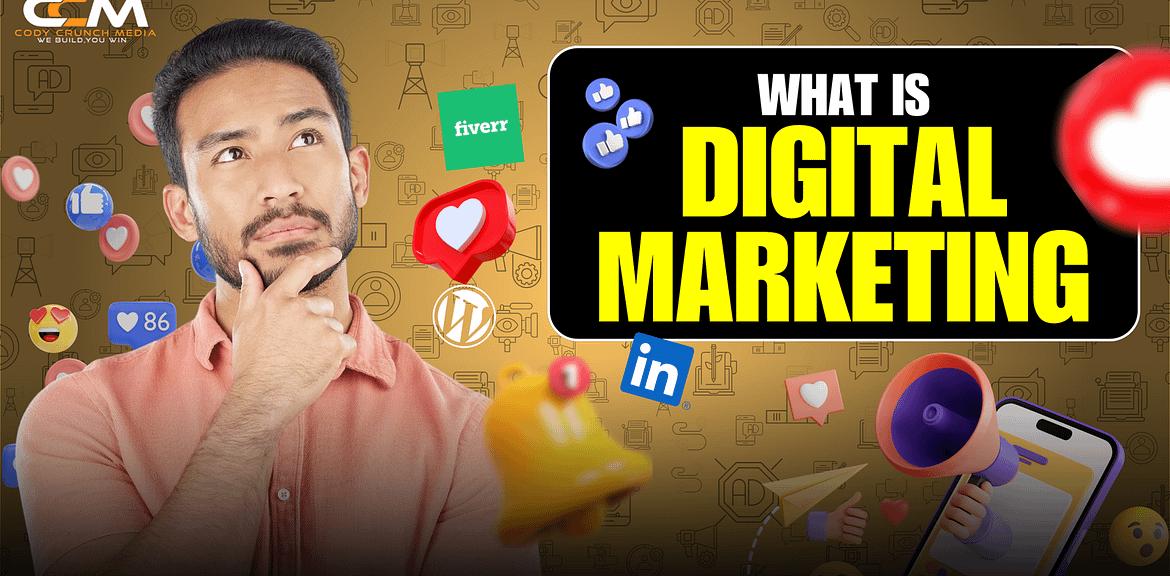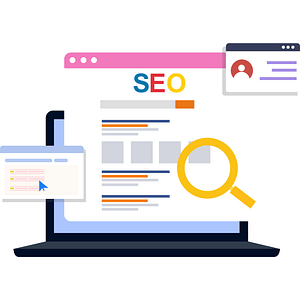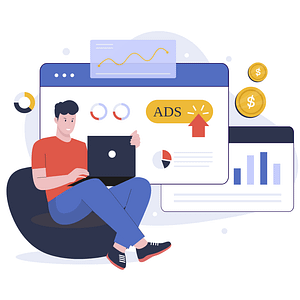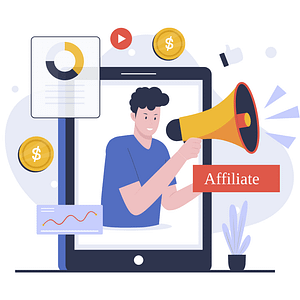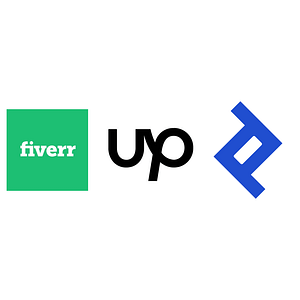What is Digital Marketing and How to Make Money From It?
In today’s digital age, marketing has moved online, and digital marketing has become an essential tool for businesses of all sizes. With the internet and digital technologies changing the way brands connect with customers, it’s no longer just about traditional advertising. It’s about building meaningful relationships through platforms like websites, social media, and email. Whether you’re a business owner, freelancer, or someone looking to dive into the marketing world, understanding digital marketing is the key to success.
At Cody Crunch Media, we specialize in helping businesses navigate the digital landscape and unlock their full potential through effective marketing strategies. In this guide, we’ll break down the basics of digital marketing, explore its key strategies, and show you how to use these techniques to drive growth and make money
What is Digital Marketing?
Digital marketing refers to the use of online platforms and digital tools to promote products, services, or brands. It involves connecting with your audience through websites, social media, search engines, email, and other online mediums.
Unlike traditional marketing (TV, radio, or newspapers), digital marketing is data-driven, allowing businesses to track performance, optimize strategies, and achieve measurable results.
Core Components of Digital Marketing:
- Targeted Approach: Reach specific demographics based on age, location, interests, and behavior.
- Interactivity: Engage with customers through comments, messages, and live sessions.
- Real-Time Data: Analyze campaign performance and make instant adjustments.
- Cost-Efficiency: Spend less compared to traditional advertising while achieving better results.
Key Types of Digital Marketing Strategies
1. Search Engine Optimization (SEO)
SEO is the backbone of digital marketing, focused on improving a website’s visibility on search engines like Google. By ranking higher in search results, businesses attract organic (free) traffic to their websites.
Key SEO Techniques:
- On-Page SEO: Optimizing website elements like title tags, headers, keywords, and meta descriptions.
- Off-Page SEO: Building backlinks from high-authority websites to improve credibility.
- Technical SEO: Enhancing website speed, ensuring mobile compatibility, and using secure HTTPS protocols.
Example:
An e-commerce site selling “organic skincare products” optimizes its pages for keywords like “best organic skincare in India” to rank higher on Google.
2. Content Marketing
Content marketing involves creating valuable, relevant, and engaging content to attract and retain customers.
Popular Content Formats:
- Blog Posts: Detailed articles that address customer queries or problems.
- Videos: Tutorials, testimonials, and explainer videos.
- Infographics: Visually appealing graphics that simplify complex information.
Purpose: Educate, entertain, or solve problems, thereby building trust and loyalty among your audience.
Example:
A travel company shares a blog titled, “Top 10 Adventure Destinations in Asia” with links to their packages, driving traffic and bookings.
3. Social Media Marketing (SMM)
Social media marketing leverages platforms like Instagram, Facebook, LinkedIn, to connect with potential customers.
Effective Strategies:
- Posting visually appealing content (images, videos, carousels).
- Running targeted ads to specific demographics.
- Engaging users with polls, quizzes, and live sessions.
Example:
A clothing brand might showcase its latest collection on Instagram Reels, encouraging viewers to shop directly via the platform’s integrated store.
4. Pay-Per-Click (PPC) Advertising
PPC advertising is a paid marketing model where advertisers pay only when users click their ads. It provides instant visibility and is ideal for time-sensitive campaigns.
Key PPC Channels:
- Google Ads: For search and display ads.
- Social Media Ads: Facebook, Instagram, LinkedIn.
- YouTube Ads: Video ads targeting specific user interests.
Example:
A tech company promoting its latest gadget might run Google Ads targeting keywords like “best wireless headphones 2024.”
5. Email Marketing
Email marketing is one of the most effective channels for nurturing leads and maintaining customer relationships.
Best Practices:
- Personalize subject lines and content.
- Segment email lists based on user behavior or preferences.
- Use a clear call-to-action (CTA).
Example:
An online bookstore sends a personalized email offering a 10% discount on books in genres that customers previously purchased.
6. Affiliate Marketing
Affiliate marketing enables individuals or businesses to earn commissions by promoting other companies’ products through unique referral links.
Steps to Start:
- Join affiliate programs (e.g., Amazon Associates, ClickBank).
- Share your affiliate links on blogs, YouTube, or social media.
- Earn a commission for every successful sale.
Example:
A tech YouTuber reviews laptops and provides affiliate links in their video description. Purchases made through these links generate income for the YouTuber.
7. Influencer Marketing
Influencer marketing involves partnering with individuals who have a strong following on social media. They promote your products/services to their audience, increasing brand visibility and trust.
Why It Works:
Influencers have a loyal and engaged audience that trusts their recommendations.
Why Digital Marketing is Crucial for Businesses
- Reach a Wider Audience: Digital platforms allow businesses to target audiences globally.
- Cost-Effectiveness: Small businesses can achieve significant results with limited budgets.
- Higher Engagement: Tools like social media and email foster direct communication with customers.
- Better ROI: Track campaigns in real-time to optimize spending and maximize returns.
How to Learn Digital Marketing
1. Free Resources
- YouTube channels like Neil Patel, Saddam Kassim, and Alok Badatia.
- Blogs like Moz, Backlinko, and HubSpot.
2. Online Courses
Enroll in courses on platforms such as:
- Coursera: Offers certifications from top universities.
- Udemy: Affordable beginner-friendly courses.
- Google Digital Garage: Free, beginner-focused training.
3. Offline Institutes
These provide hands-on training but are typically more expensive than online options.
How to Make Money Through Digital Marketing
Freelancing:
Offer digital marketing services (SEO, content writing, social media management) on platforms like Fiverr, Upwork, and Toptal.
Blogging:
Monetize your blog using Google AdSense, sponsored content, and affiliate links.
Consulting:
Help businesses craft and execute digital marketing strategies for a fee.
Selling Digital Products:
Create and sell eBooks, online courses, or templates related to digital marketing.
Earning Potential in Digital Marketing
- Entry-Level Professionals: ₹3–₹5 lakh/year.
- Mid-Level Professionals: ₹6–₹12 lakh/year.
- Experienced Marketers: ₹15–₹30 lakh/year.
Freelancers can earn anywhere between ₹50,000 to ₹2 lakh per month depending on expertise.
Staying Ahead in Digital Marketing
- Continuous Learning: Stay updated on trends like voice search optimization, AI in marketing, and metaverse advertising.
- Networking: Join online communities and forums to connect with other professionals.
- Experimentation: Regularly test new tools, strategies, and platforms to improve your results.
Conclusion
Digital marketing is a rapidly growing industry with immense potential for individuals and businesses. By understanding its various strategies and continuously honing your skills, you can build a rewarding career or grow your business. Whether you’re a beginner exploring possibilities or an entrepreneur seeking growth, digital marketing is your gateway to success.
(FAQs)
1. What is digital marketing in simple terms?
Digital marketing is promoting products, services, or brands using online platforms like social media, search engines, email, and websites. It helps businesses connect with their audience and drive sales through targeted strategies.
2. Why is digital marketing important?
Digital marketing allows businesses to:
- Reach a global audience.
- Track campaign performance in real-time.
- Interact with customers directly.
- Save costs compared to traditional marketing.
- Achieve better returns on investment (ROI).
3. What are the main types of digital marketing?
The key types include:
- SEO: Improving website visibility in search engines.
- Content Marketing: Creating valuable content to attract and engage users.
- Social Media Marketing: Promoting brands on platforms like Instagram and Facebook.
- PPC Advertising: Paid ads on search engines and social media.
- Email Marketing: Sending personalized messages to customers.
- Affiliate Marketing: Earning commissions by promoting other companies’ products.
- Influencer Marketing: Partnering with social media influencers.
4. How do I start learning digital marketing?
You can learn digital marketing through:
- Free resources like YouTube tutorials (Neil Patel, HubSpot).
- Online courses on platforms like Udemy, Coursera, and Google Digital Garage.
- Hands-on practice through freelancing or internships.
5. How can I make money with digital marketing?
You can earn through:
- Freelancing: Offer services like SEO, content writing, or social media management.
- Blogging: Monetize through ads and affiliate links.
- Affiliate Marketing: Promote products and earn commissions.
- Selling Digital Products: Create eBooks or courses.
- Consulting: Advise businesses on digital strategies.
6. What is the role of SEO in digital marketing?
SEO (Search Engine Optimization) helps improve a website’s ranking in search engine results. A higher ranking increases visibility, drives organic traffic, and enhances credibility for businesses.
7. What is the average earning potential in digital marketing?
Earnings depend on experience and expertise:
- Entry-Level Professionals: ₹3–₹5 lakh/year.
- Mid-Level Professionals: ₹6–₹12 lakh/year.
- Experienced Marketers: ₹15–₹30 lakh/year.
Freelancers can earn ₹50,000–₹2 lakh per month.
8. What tools are essential for digital marketing?
Some popular tools include:
- SEO: Google Analytics, SEMrush, Ahrefs.
- Content Marketing: Grammarly, Canva, BuzzSumo.
- Social Media Management: Hootsuite, Buffer, Later.
- Email Marketing: Mailchimp, Constant Contact.
- PPC Advertising: Google Ads, Facebook Ads Manager.
9. What are the advantages of PPC advertising?
PPC provides:
- Instant visibility for your brand.
- Targeted campaigns for specific audiences.
- Flexible budgets based on performance.
- Measurable results with detailed analytics.
10. Is digital marketing suitable for small businesses?
Yes, digital marketing is ideal for small businesses as it:
- Requires lower budgets compared to traditional marketing.
- Provides precise targeting for niche audiences.
- Offers measurable and scalable results.
11. How do I stay updated in digital marketing?
To stay ahead:
- Follow industry blogs like Moz and HubSpot.
- Join webinars and online communities.
- Experiment with new tools and platforms.
- Stay informed on trends like AI, voice search, and the metaverse.
12. What are some real-life examples of digital marketing strategies?
- SEO: A local bakery optimizes its website for “best cupcakes in Mumbai.”
- Content Marketing: A travel agency shares blogs on “Top Holiday Destinations.”
- Social Media: A clothing brand runs Instagram Reels showcasing its collection.
- PPC Ads: A gadget brand advertises “wireless headphones sale” on Google.
13. Can I start digital marketing without any prior experience?
Yes, digital marketing is beginner-friendly. Start by learning the basics, experimenting with personal projects, and gradually building your skills through free resources or affordable courses.
Explore the top 10 digital marketing agency in Navi Mumbai, offering expert services to help your business grow and succeed in the digital world


